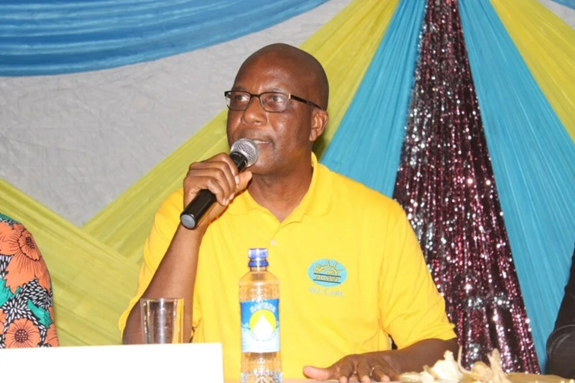By Mackie M. Jalloh
In Sierra Leone, where public trust in state institutions has often been fragile, one organization has steadily redefined expectations. The National Social Security and Insurance Trust (NASSIT), once met with skepticism and doubt, is now widely regarded as a cornerstone of social protection in the country. For thousands of citizens, the institution has become synonymous with reliability, dignity, and a safety net that truly delivers.
This transformation did not happen overnight. When NASSIT was launched more than two decades ago, it faced an uphill battle. Workers reluctantly contributed, haunted by questions about whether their pensions would ever materialize or whether their funds would disappear into a void of mismanagement. For many years, suspicion outweighed faith.
Today, however, the tide has turned. From pensioners receiving their monthly benefits on time to survivors of deceased contributors finding support during difficult periods, NASSIT has shown that a state-run institution can work—and work well. The once “bold experiment” has matured into a dependable system that touches the lives of millions of Sierra Leoneans.
A key driver of this turnaround has been leadership. At the center of NASSIT’s renewed credibility is Director General Mohamed Fuad Daboh. Since assuming the helm, Daboh has injected dynamism, discipline, and transparency into the institution’s operations. His approach is grounded in service delivery, not bureaucracy, and he has worked to humanize NASSIT in the eyes of the public.
“Social security is not just about pensions; it is about dignity,” Daboh has often stressed in conversations with staff and stakeholders. Under his leadership, NASSIT has embraced reforms aimed at efficiency and inclusivity. Complex processes have been streamlined, communication with contributors has improved, and new systems have been adopted to modernize service delivery.
The results are visible. Retirees who once waited endlessly for their benefits now testify to receiving payments without unnecessary delays. Families of deceased contributors describe NASSIT’s survivors’ benefits as lifelines that cushion them during grief. These real-life impacts have gradually replaced skepticism with trust, making NASSIT a rare example of a Sierra Leonean institution earning broad-based public approval.
Expansion of coverage has also been a hallmark of recent progress. More workers from both the formal and informal sectors are now enrolled in the scheme. For Sierra Leone, where informal labor dominates the economy, this widening reach is critical. It means more citizens are shielded from future vulnerability and that NASSIT’s protective umbrella is spreading across wider sections of society.
The broader effects of this success extend beyond individual households. Reliable social protection systems reduce poverty among the elderly, strengthen family stability, and foster social cohesion. By ensuring that contributors can depend on their pensions, NASSIT has enhanced confidence not just in itself but in the state as a guarantor of basic welfare.
Recognition of these achievements has begun to spill across borders. Regional observers cite NASSIT as a model in a continent where pension schemes are often plagued by inefficiency. Its emphasis on accountability and timely service delivery stands out in an environment where citizens in many countries still struggle to access the benefits they deserve.
Challenges, however, persist. Expanding into Sierra Leone’s vast informal economy remains a difficult but necessary goal. Sustaining financial stability while meeting the rising demands of a growing population will also test NASSIT’s resilience. Yet, the institution’s progress so far offers a strong foundation to confront these hurdles.
From mistrust to confidence, NASSIT’s journey tells a larger story about what public institutions can achieve when reform, leadership, and commitment converge. For Sierra Leoneans, it has become more than just a pension fund—it is a promise kept, a safeguard for the future, and proof that accountability in service delivery can build lasting trust.
As contributors look ahead, there is growing assurance that their sacrifices today will secure them tomorrow. NASSIT, once doubted, now stands tall as Sierra Leone’s backbone for social security.



